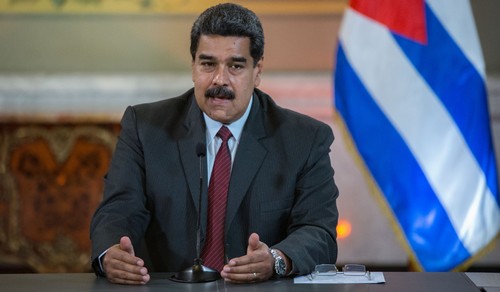Sonnenshein – managing director at the world’s largest digital asset manager, Grayscale Investments – made his remarks during an interview with CNBC on Nov. 20.
Grayscale’s Michael Sonnenshein contends that the asset manager’s recent Form 10 filing with American regulators would be “a milestone” for the crypto industry if it’s approved.
Earlier this week, Grayscale filed a registration statement on Form 10 for its publicly traded Bitcoin fund Grayscale Bitcoin Trust (GBTC) with the United States Securities and Exchange Commission (SEC).
Hedge funds after digital asset exposure
If approved, the trust would become the first cryptocurrency investment vehicle to attain the status of a reporting company by the SEC. In his interview with CNBC, Sonnenshein noted the robust institutional interest in cryptocurrency access products. Even just in Q3 2019, he said:
“84% of inflows were from non-crypto hedge funds that want digital asset exposure.”
GBTC has been trading since May 2015 and Sonnenshein noted that “if we just look at the last 3-month trading volume, it’s tripled year-over-year”, regardless of Bitcoin’s performance on the spot markets.

Regarding the significance of the SEC potentially giving the green light to Grayscale’s Form 10 filing, Sonnenshein said:
“You have a lot of companies that want to have exposure to the space, but then you start to ask, who at the company is going to have the keys? Who at the company is going to do the due diligence and the ongoing compliance?”
Aside from compliance benefits, he emphasized the importance of creating a family of products that “look and feel like many of the other instruments these institutions use.”
Halving, not institutions, will drive Bitcoin’s price
The takeaway, he suggested, is that if Form 10 is deemed to be effective, we’ll see for the first time “greater access for institutions who need an SEC reporting company to be able to invest” and “quicker liquidity options, so that investors can divulge their holdings after six, as opposed to twelve, months.”
Regarding any potential impact on Bitcoin’s price, Sonnenshein discarded the institutional investor adoption narrative and emphasized instead Bitcoin’s forthcoming halving – and consequent diminishment of supply – as a factor that has historically shown itself to have a positive impact on the asset’s price.
As reported, Grayscale’s regulatory foray follows a record year for the trust, which saw inflows of $254 million in total investment into its products in the third quarter of 2019.
Hong Kong to Consider Additional FATF-Style Regulations for Crypto Exchanges
Hong Kong may soon bolster its policing of the cryptocurrency sector to better conform with international anti-money-laundering norms, Financial Secretary Paul Chan said in his annual budget speech Wednesday.
Promising that “detailed proposals” will come later this year, Chan said new regulations could target virtual asset service providers, or VASPs, the catchall term used by the Financial Action Task Force (FATF) in its latest “Travel Rule” guidance.
New regulations could raise the heat on crypto exchanges, OTC desks and brokers in Hong Kong, a global crypto hub. Such entities are already monitored by the Hong Kong Monetary Authority (HKMA), which in December recommended that VASPs stay vigilant in self-regulating their customers’ goings-on.
“Authorized institutions should keep abreast of international and local developments to maintain an up-to-date understanding of risks, and apply a risk-based approach that supports responsible financial innovation as well as effective ML/TF risk management”, HKMA’s AML enforcer, Carmen Chu, said at the time.
The prospect of government-mandated regulations comes months after the FATF, the global AML standards-setting watchdog, rated Hong Kong “largely compliant” with its recommendations around emerging technologies like cryptocurrency. But Hong Kong wants to further build out its anti-financial crimes framework, Chan’s speech shows.
Countries are clamoring to get ahead of FATF’s crypto guidelines. Some newcomers, such as Paraguay, have taken their first steps in regulating VASPs, while others have set up international partnerships to monitor cryptocurrency transactions.
At the same time, crypto firms themselves are angling to comply with the Travel Rule, which mandates that cryptocurrency exchanges and others share transaction information above certain thresholds. They have until June 2020 to work it out.


